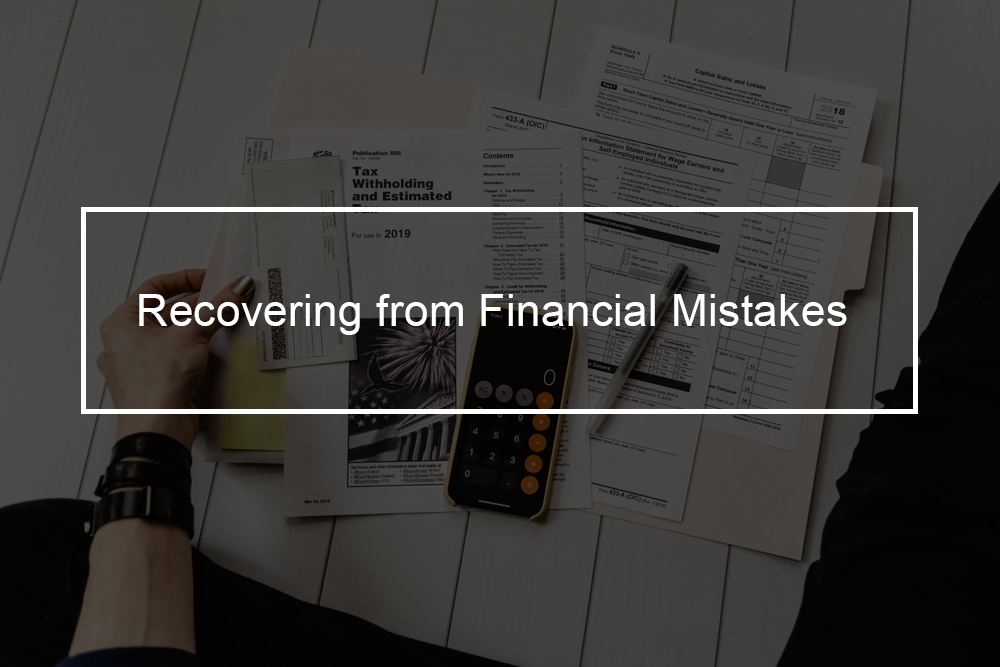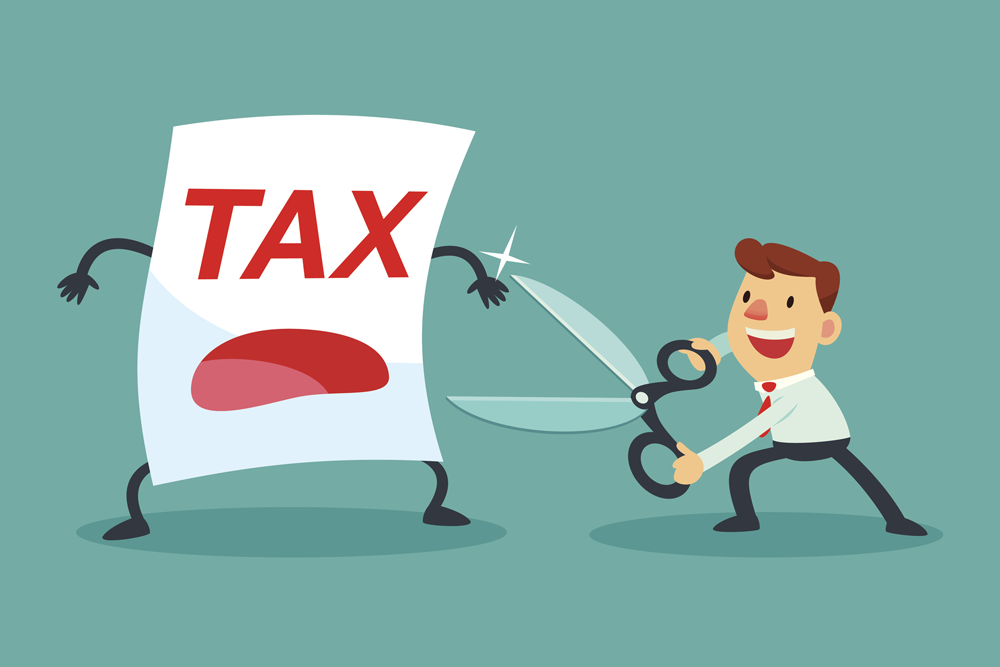
How to fix temporary financial mistakes?
Financial challenges and problems happen to everyone at some point, and the stress and worry can get to you. Nonetheless, realizing that there is almost always a way out can assist you in not feeling so depressed. You might be able to find the way out yourself, or you might need someone else’s perspective to help you get a solution. Typically, with the ongoing Corona Virus pandemic forcing the shutdown and closure of most facets of daily life, most people are experiencing uncertainty surrounding finances and employment.
Uncertainty causes anxiety and fear, particularly about money, and this health crisis is no exception. However, even in these modern times, there are various actionable steps to take to make it through this and any other temporary financial hardship. Below we will discuss how to overcome financial challenges and difficulties and ease your stress.
Identify the underlying problem that is causing the difficulties
The first strategy to overcome financial problems is to recognize the underlying issue that is causing the financial challenge. Financial challenges are often a sign of a bigger problem. To develop solutions that work in the long run, take the time to recognize the real source of your financial troubles. Below are some common causes of temporary financial hardships and solution:
- Unemployment or lower than usual income: Re-evaluate your lifestyle, develop a budget, and follow it. In case you are employed, see if you can get a second job or more overtime.
- Unexpected accident or illness: Simplify your lifestyle and get all the help that you can. Make sure you are getting everything you are entitled to. Check with your province and reach out to agencies that can help.
- Moving out on your own: Adjust your expectations and learn to live on what you earn instead of what you are used to; use cash, not credit.
- The first baby is born: Adjust your budget and your lifestyle to fit the decreased income and increased expenses.
- Divorce: Sell the house and downsize to something you can afford or generate revenue with the house.
- Retirement: Sell the house, move into something you can afford, invest additional proceeds from the sale, and enjoy life more.
- Emotional attachment to something: Set emotions aside and look at the situation from a financial perspective; picture life five years from now and what bills will be then.
- An addiction: Get professional aid and counseling to deal with the addiction. In case you do not, you will never overcome your financial difficulties.
Your financial challenge may not be listed above, or it might be more sophisticated. Nonetheless, the concept of recognizing a particular problem is essential since it is more likely to result in a lasting solution. Focus on solving the challenge that is causing your money troubles, instead of dwelling on your stress.
Allocate your budget
One of the best tools for solving financial difficulties is the budget. A budget is a monthly spending strategy for your money. Developing a budget is like the lights to get your way around a dark room. A budget guides your spending decisions so that you are spending money on what is really essential to you. In this situation, you will spend your money in a way that assists solve your financial challenge. In case you are faced with a loss of income, take a close look at your existing budget and reallocate spending following a socially distanced lifestyle. Shift lunch or transportation money toward monthly bills or credit card payments.
Sell products online
Classic yard sales might be off-limits in this era of social distancing, but selling lightly used possessions remains a great way to earn some cash. Focus on products that can be shipped on services such as eBay or Poshmark that do not need physical contact between seller and buyer. Hold on selling bigger things such as furniture until COVID-19 restrictions end.
Turn on to the Gig economy
In case you have lost your occupation, you may consider gig work for additional income. With people confiscated at home, demand for delivery services like instacart and Postmates has surged. Various companies have instituted policies to limit in-person contact and assist workers in staying safe. You will want to assess your comfort level with the possible threats considering the present situation.
Eat what you have
Possibilities are you have plenty of food in your freezer and pantry that you have not prepared yet. Gathering meals from food, you already have assisted stretch limited finances.
Do not forget your student loans
The government has already provided some significant relief for federal student loan borrowers. As a part of the massive coronavirus relief bill, all payments on federal loans have been suspended via Sept. 30. Interest will not accumulate, and nonpayment during the timeframe cannot be used to impact credit scores or stipulations for loan forgiveness. Any payments made during this period will apply to your principal.
Keep yourself honest
Leaning on your relationships can assist keep you on track. Each hard task becomes more comfortable with the support of family and friends, so share your goals. There is no better to hold you accountable and remind you what you are sacrificing for than those you love, respect, and trust.
How banks can help?
In case your financial situation has changed and you can no longer make loan repayments, the bank may be able to extend the term of your loan. It can also adjust repayment amounts or offer you a mortgage repayment holiday, that is, temporarily halt repayments. However, this last option might not be in your best interest in case your finances are unlikely to get better in the short term ( three to six months). It may merely delay an unavoidable default, by which time you will owe even more. Seling an asset might be a better option. Get financial advice on this and other opportunities for managing your debt.
Explore credit hardship plans
Working on credit card debt can be very stressful when a sudden loss in income. In this case, call your creditors to inquire about hardships strategies, which temporarily lower interest rates and credit limits while waiving fees. This enables payments to apply to the principle. Typically, these plans last three months, and interest rates might go back to normal immediately or rise over time afterward.
Review how things are going
The last strategy takes place once you are a few weeks into working on your plan. Every once-in-a-while, take a few minutes to assess how things are going. Is the strategy working? Are you making progress towards your objectives? In case you are not, you will need to take a closer look to figure out why not and adjust your strategy. Your strategy requires to be realistic, or it is not going to work. It should also comprise some things you were not doing before you put the plan in place.
And if you keep doing what you were doing before, then you will keep on getting the same results as before- challenges. You have got to do something different to get a disparate impact. As you follow your strategy and see improvements in your situation, be open to the possibility of excellent results. After you begin making some progress, you might find you are doing better than you thought, or you might come up with some insights. Improving your strategy so that you can achieve your objectives faster is okay as long as your budget can accommodate the changes, and everyone who depends on your budget is fine with the more aggressive approach. Unexpected financial difficulties are bound to arise in the future. The key to managing these challenges is to be flexible. Assess your budget occasionally and make necessary changes.










